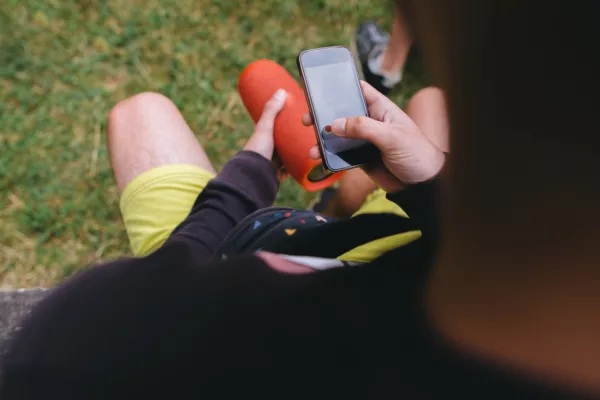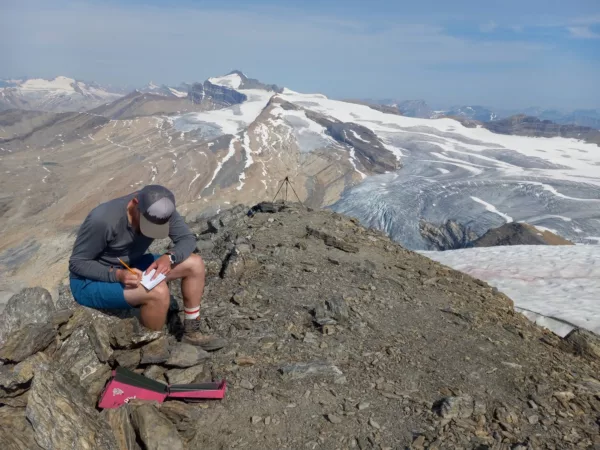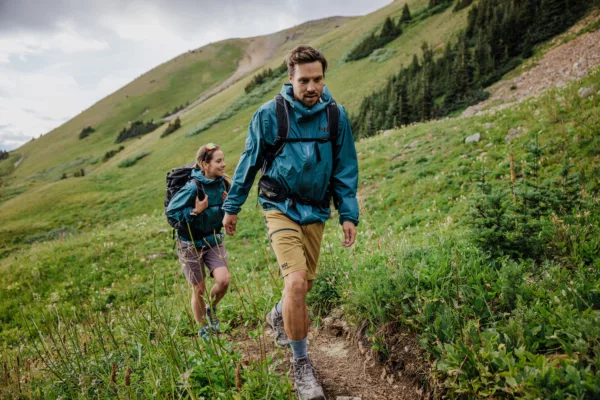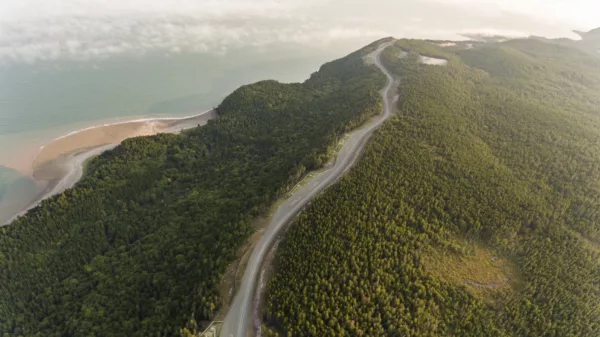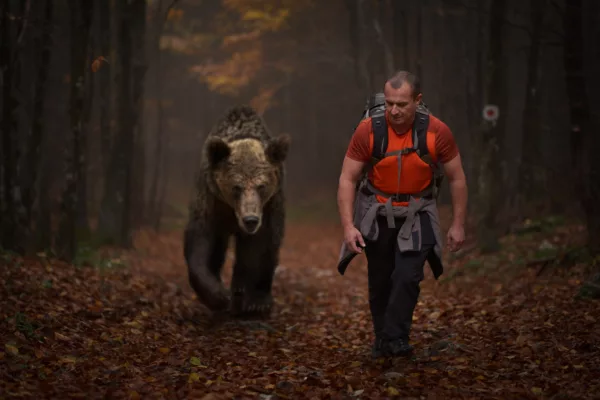For Your Next Adventure, Borrow; Don’t Buy

As a Vancouverite, I often feel like I live in pretend Canada. While other regions can go through as much as a 75 C temperature-swing throughout the year (from -40 C to +35 C—not factoring in wind chill and humidity), my hometown stays pretty moderate. So when the opportunity came to join a group trip for a nine-day winter adventure in Quebec—I was both delighted and concerned.
I was keen to experience all the skiing, skating and sliding Quebec has to offer—but I quickly realized my typical winter garb (which consists of a couple of insulating layers and a waterproof shell) would be no match for Quebec’s climate. I briefly thought about shopping for warmer winter gear, but I hate the idea of buying stuff I don’t really need. Fortunately this was when our host from Bonjour Quebec told us she’d arranged for clothing rental from Tuque & Bicycle Expériences. ATTA/Tyler Brower
ATTA/Tyler Brower
After filling out my size information, preparing for the trip was a breeze. I packed a week’s worth of thermal layers and didn’t worry about checking luggage. When I arrived, I was given a bag of gear and was asked to make sure everything fit. The clothing—which Tuque and Bicycle owner, Émilie Pelletier, sources from local businesses—was perfect. There was an insulated coat, snow pants, sturdy boots (and a boot warmer!), heavy gloves and a few extras including a toque, neck buff and cozy socks. After I was dressed, whether I was snowshoeing through the boreal forest to the magical Vallée des Fantômes or fat biking in Parc national de la Jacques-Cartier, I was snug and warm. Diane Selkirk
Diane Selkirk
Émilie first realized there was a need for winter rentals while working as a guide with a dogsledding company. “I saw people arriving for the activity who weren’t dressed for [it],” she says. Like many places, the dogsled company had warm clothes to lend, but when the guests finished, they had to change back to street clothes. “In a place like Quebec, you can’t really experience the emotion and beauty of being outside if you’re freezing,” says Émilie. ATTA/Mossberg
ATTA/Mossberg
While keeping people warm with appropriate gear was her primary goal, Émilie discovered renting winter clothing had even more benefits. “It’s good for the environment and it’s good for the wallet. You’re not buying a bunch of cheap things that don’t work well and that you don’t really want,” she explains, “it’s also stress-free. Not only do we take care of everything, but we offer tips for coping with the cold, so you can enjoy the passion and fun of a Quebec winter.” Diane Selkirk
Diane Selkirk
As her company grew, Émilie realized she’s part of a bigger cultural shift towards a sharing economy. “We won’t sell our gear when we’re done—instead we’re donating it to newcomers to Quebec.”
Read on to find out how to borrow everything you need for your next adventure, from toques to boots and tents to sleeping bags. ATTA
ATTA
Local Outfitters
Local outfitters are small businesses that offer specialized outdoor gear to suit a specific location. In BC that might mean super-waterproof tents for rainforest camping—while in the Yukon it could be three season sleeping bags that are warm enough for camping at Fort Selkirk on the Yukon River. Diane Selkirk
Diane Selkirk
Vancouver-based Packlist started out as gear checklist, but quickly evolved into a rental company that offers summer and winter camping packages. Co-owned by Jennifer McLachlan and Kurt Johnston, the couple realized there were lots of different types of people (from visitors to those with no storage) who don’t own gear. “Young families or people new to Canada want to try camping. But it can be complicated getting started,” Jennifer explains. But by organizing and delivering complete camping packages, services like Packlist can make those first trips easier. “Helping a young family develop a love for the outdoors is so lovely,” says Jennifer. Packlist
Packlist
Campers can often rent what they need anywhere camping is popular. In Victoria, BC, West Coast Gear helps set up trail hikers; WeRentGear in Whistler offers backpacking gear; Rent-A-Tent has pickup and drop-off in Vancouver and Banff, and is great for those who want to camp across BC; the Okanagan can be explored with OTA Gear Rental in Vernon, BC; Exclusive Sport Rentals (also rents winter clothes) is in Vaughan, Ontario; Locopaq offers gear in Quebec city or Montreal; and THE BASE Outdoor Rentals is in Whitehorse, Yukon. THE BASE Outdoor Rentals
THE BASE Outdoor Rentals
Cold-weather clothing rentals are branching out beyond the ski hill—especially in places that attract visitors who might not be used to the snow. In Whitehorse, check out Aurora Outfitters or THE BASE Outdoor Rentals, while in Yellowknife, try My Backyard Tours. THE BASE Outdoor Rentals
THE BASE Outdoor Rentals
Clubs and Government Programs
While outfitters can give you access to the newest gear—clubs and other programs might also meet your needs. If you’re new to camping, Parks Canada runs a variety of Learn-To Camp workshops and overnight experiences that provide gear. The Outdoor Centre at the University of Calgary is open to all and rents a wide range of summer and winter camping equipment. In Vancouver, you don’t need to be a student to join the Varsity Outdoor Club at the University of British Columbia and access their loaner gear, while the McGill Outdoor Club is also open to the wider community and rents summer and winter gear—including some warm clothing. Packlist
Packlist
Peer-to-Peer Lending
Recently, when I needed a tall pair of rubber boots for a river trip, I asked my neighbours to help. Many of us have underused gear we can share, and peer-to-peer platforms help expand your neighbourly reach. I borrowed boots through my Buy Nothing Group, but you can also find items to borrow through community gear libraries. Check out lending programs by the Adventure Report in Montreal or Ottawa, or the Ottawa Outdoor Gear Library; or, if you’re BIPOC and in the Guelph region, try the BIPOC Outdoor Gear Library. In Vancouver, ski clothes are available from the ARC’TERYX Gear Library while The Thingery has some camping equipment. Diane Selkirk
Diane Selkirk
No matter where you borrow your clothing and equipment—be sure to ask for tips on caring for it. While lenders usually take care of sanitizing and making small repairs after each use, you can help make sure the gear stays available for as many adventures as possible by reporting damage, removing dirt and drying items thoroughly before packing them up.
More About Outdoor Gear on Explore Magazine:
Is This $600 Cooler Worth It? YETI Roadie® 48 Wheeled Cooler Test & Review
Editor Picks: 5 Outdoor Essentials That Made My Summer Great
How to Repair Your Outdoor Adventure Gear









